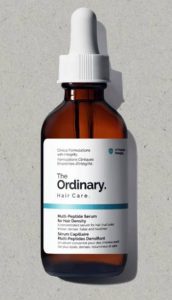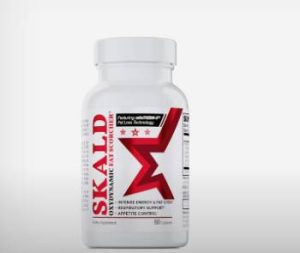I’ve spent years navigating the world of fiber supplements, trying to find what works best for my gut health. If you’re like me, you’ve probably stood in the supplement aisle, staring at Thorne FiberMend and Metamucil, wondering which one’s worth your money.
In this article, I’m breaking down both products with a clear, analytical lens, comparing their key features, benefits, and drawbacks. My goal? To help you make an informed choice for your digestive wellness.
By the end, you’ll know exactly how these two stack up and which might fit your lifestyle.
A Brief Comparison Table
| Feature | Thorne FiberMend | Metamucil |
| Fiber Type | Soluble prebiotic fiber | Soluble fiber (psyllium husk) |
| Fiber per Serving | 7g | 2.4g–6g (varies by product) |
| Form | Powder | Powder, capsules, gummies, wafers |
| Key Ingredients | Sunfiber, green tea phytosome | Psyllium husk, stevia (in some) |
| Taste | Flavorless, odorless | Orange, berry, unflavored options |
| Mixability | Dissolves well in liquids | Forms a gel, requires quick consumption |
| Additional Benefits | Supports gut bacteria, blood sugar | Lowers cholesterol, appetite control |
| Price (Approx.) | $40–$45 for 30 servings | $15–$30 for 30–100 servings |
| Allergen Info | Gluten-, dairy-, soy-free | Gluten-free (some contain aspartame) |
| Best For | Sensitive stomachs, daily gut health | Constipation relief, budget-friendly |
My Journey With Fiber Supplements
Let me paint you a picture: a few years back, my digestive system decided to stage a revolt. Bloating, irregularity—you name it, I was dealing with it. My doctor suggested upping my fiber intake, but eating bowls of lentils every day wasn’t cutting it.
That’s when I turned to supplements. I’ve tried everything from chalky powders to gummies that tasted like candy, but Thorne FiberMend and Metamucil kept popping up in conversations with friends and online forums.
Curious, I decided to put them to the test myself, and I’m sharing what I’ve learned to save you the trial and error.
Fiber isn’t just about keeping things moving. It’s a cornerstone of gut health, blood sugar regulation, and even heart health. The USDA recommends 25–38 grams daily for adults, yet most of us barely hit half that.
Supplements like Thorne FiberMend and Metamucil bridge the gap, but they’re not one-size-fits-all. Each has its strengths, quirks, and ideal users, which I’ll unpack as someone who’s mixed, sipped, and scrutinized both.
Understanding Thorne FiberMend
Thorne FiberMend caught my eye because of its reputation for quality. Thorne’s a brand often praised by dietitians, and I was intrigued by its clean ingredient list. Here’s what I found when I dug into it.
- What’s in It?
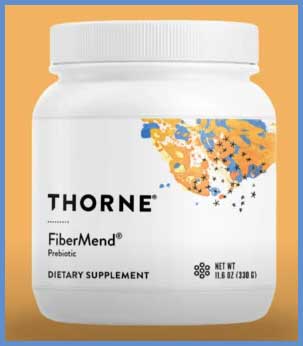
Each scoop delivers 7 grams of soluble fiber, primarily from Sunfiber, a partially hydrolyzed guar gum.
This isn’t your average fiber—it’s a prebiotic, meaning it feeds the good bacteria in your gut, helping them thrive.
It also contains 50 milligrams of green tea phytosome, a caffeine-free extract that may support heart health and weight management, though the research is still emerging.
The powder is flavorless, odorless, and free of gluten, dairy, soy, or artificial sweeteners, which was a big win for me since I’m sensitive to additives.
- How It Feels to Use?
Mixing FiberMend into my morning smoothie was a breeze. It dissolved completely—no clumps or grit. I also tried it in water, and it didn’t change the taste or texture, which is rare for fiber powders.
Over a few weeks, I noticed my digestion felt steadier—no dramatic urgency, just calm regularity. The lack of bloating or gas was a pleasant surprise, especially compared to other supplements I’ve tried that left me feeling like a balloon.
Pros of Thorne FiberMend
- Gentle on the Stomach: The slow fermentation of Sunfiber means less gas and cramping, even for sensitive folks like me.
- Prebiotic Power: It nurtures gut bacteria, which studies link to better immunity and mood.
- Versatile Mixing: Whether it’s coffee, juice, or a protein shake, it blends seamlessly.
- Clean Formula: No artificial junk, which aligns with my preference for natural products.
- Blood Sugar Support: It’s designed to help maintain healthy glucose levels, a bonus for anyone watching their numbers.
Cons of Thorne FiberMend
- Pricey: At roughly $1.50 per serving, it’s a bigger investment than most fiber supplements.
- Serving Size Issues: Some users, including me at first, found the scoop yielded fewer than the promised 30 servings unless I fluffed the powder.
- Subtle Effects: If you’re after instant constipation relief, it might feel too gradual compared to stronger laxatives.
- Limited Availability: It’s not in every drugstore, so you’re often ordering online.
Breaking Down Metamucil
Metamucil’s been a household name forever—my mom used to keep a canister in the pantry. It’s the go-to for many, so I was curious to see if it lived up to the hype.
- What’s in It?
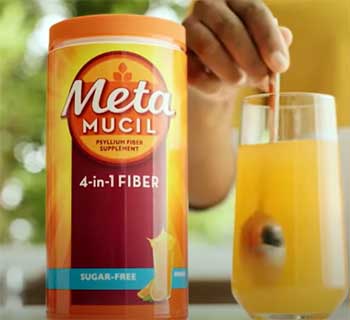
Metamucil’s star is psyllium husk, a soluble fiber from the Plantago ovata plant.
Depending on the product (powder, capsules, gummies, or wafers), you get 2.4–6 grams of fiber per serving.
I focused on the classic Sugar-Free Orange Powder, which offers about 3 grams per teaspoon.
Some versions include stevia or aspartame for sweetness, and flavors range from orange to berry.
It’s gluten-free, but those sensitive to artificial sweeteners might need to check labels.
- How It Feels to Use?
Mixing Metamucil is an adventure. You’ve got to stir it fast and drink it before it turns into a gel—like, oatmeal-level thick. The orange flavor was tangy and pleasant, but I had to chug it to avoid the texture.
Within a day or two, I felt a noticeable shift in my bowel movements—things were moving, no question. It also curbed my mid-afternoon snack cravings, which was unexpected but welcome. However, I did get some mild bloating the first week until my body adjusted.
Pros of Metamucil
- Fast-Acting: For constipation, it’s like hitting the gas pedal—relief often comes within hours.
- Budget-Friendly: At $0.15–$0.50 per serving, it’s easier on the wallet than Thorne.
- Variety of Forms: Powders, gummies, capsules—you’ve got options to match your vibe.
- Heart Health Benefits: Studies show psyllium can lower LDL cholesterol, a big plus for heart-conscious folks.
- Appetite Control: That gel-like texture makes you feel full, which helped me avoid overeating.
Cons of Metamucil
- Texture Challenges: The gel can be off-putting if you don’t drink it quickly.
- Bloating Risk: Psyllium ferments faster than Sunfiber, so gas is more common, especially at first.
- Artificial Additives: Some versions have aspartame or sugars, which I try to avoid.
- Taste Dependency: If you hate flavored powders, the unflavored option still has a slight grit.
- Not Prebiotic: Unlike Thorne, it doesn’t feed gut bacteria, so the long-term gut benefits are less pronounced.
Head-to-Head: How Thorne FiberMend And Metamucil Compare?
Now that I’ve laid out the basics, let’s stack Thorne FiberMend and Metamucil side by side on the factors that matter most.
- Fiber Content and Type
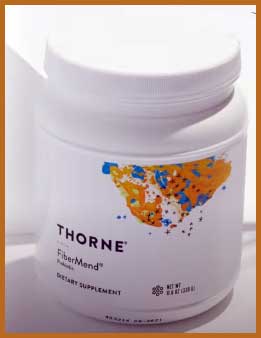
Thorne delivers a solid 7 grams of soluble prebiotic fiber per scoop, which is higher than most Metamucil servings (2.4–6 grams, depending on the product).
Both are soluble, meaning they dissolve in water and help soften stools, but Thorne’s prebiotic edge gives it a nod for long-term gut health.
Metamucil’s psyllium, though, is a bulk-forming laxative, making it more effective for quick constipation relief.
- Ease of Use
I’m all about convenience, and Thorne wins here. Its powder melts into anything without altering taste or texture.
Metamucil requires speed—you mix, you drink, or you’re stuck with sludge. That said, Metamucil’s range of forms (gummies for travel, capsules for no-mess) gives it flexibility Thorne lacks.
- Taste and Texture
Thorne’s flavorless profile is a dream for picky palates like mine. I could toss it into my coffee without a second thought.
Metamucil’s flavors are hit-or-miss; I liked the orange, but the gel texture took getting used to. If you’re sensitive to mouthfeel, Thorne’s smoother.
- Health Benefits
Both shine, but in different arenas. Thorne’s prebiotic fiber and green tea phytosome support gut flora and blood sugar, which I noticed in my steadier energy levels.
Metamucil’s psyllium is a champ for cholesterol and appetite control—studies back its ability to lower LDL by 5–10% with regular use. If heart health’s your focus, Metamucil might edge out.
- Side Effects
My sensitive stomach appreciated Thorne’s gentle approach. No bloating, no urgency. Metamucil, while effective, gave me some initial gas and a “full” feeling that wasn’t always comfortable.
Starting slow with Metamucil helped, but Thorne felt easier to integrate.
- Cost and Value
Here’s where Metamucil flexes. It’s widely available and costs a fraction of Thorne—sometimes less than $20 for a month’s supply. Thorne’s $40 price tag stings, especially if you’re using it daily.
For budget shoppers, Metamucil’s the clear winner, but I found Thorne’s quality justified the splurge for my needs.
Who Should Choose What?

After weeks of testing, I realized these products cater to different folks.
If you’re battling constipation or want a quick, affordable fix, Metamucil’s your pick.
Its psyllium gets things moving, and the variety of forms makes it easy to stick with.
It’s also ideal if cholesterol or appetite control is on your radar.
Thorne FiberMend, though, is my go-to for long-term gut health.
Its prebiotic benefits and gentle formula suit sensitive stomachs or anyone wanting to nurture their microbiome without fuss.
If you’re okay with the price and prefer a seamless mixing experience, it’s a premium choice.
My Personal Verdict
I leaned toward Thorne FiberMend after my experiment. The ease of use and lack of side effects won me over, plus I felt good knowing I was feeding my gut bacteria.
That said, Metamucil was a lifesaver during a particularly sluggish week, and I keep a canister handy for emergencies. Your choice depends on your goals—fast relief or steady wellness—and I hope my experience helps you pinpoint what’s right for you.
Also Read: Is Ocean Better Fiber Worth It?
Frequently Asked Questions (FAQ)
It depends on your needs. Thorne FiberMend’s prebiotic fiber is gentler and supports gut bacteria, making it a strong alternative for long-term health. For quick relief, Metamucil’s psyllium is hard to beat.
Effectiveness varies by goal. Metamucil excels for constipation and cholesterol reduction, while Thorne FiberMend shines for gut health and minimal side effects. Both are top-tier in their niches.
Thorne FiberMend is soluble fiber, primarily from Sunfiber, which dissolves in water and supports digestion and blood sugar control.
Fiber pills, like Metamucil capsules, can be effective but often deliver less fiber per dose than powders. They’re convenient but may take longer to produce the same results.
Wrapping Up
You’re standing at a crossroads, just like I was, trying to pick between Thorne FiberMend and Metamucil. I’ve walked you through my experience—the smooth, prebiotic ease of Thorne versus the fast-acting, budget-friendly punch of Metamucil.
Whether you want gentle gut support or quick constipation relief, I hope you feel equipped to choose what fits your life. Your gut deserves the best, so take a moment to weigh your needs and give one a try.
You’ve got this, and I’m rooting for your wellness journey.

